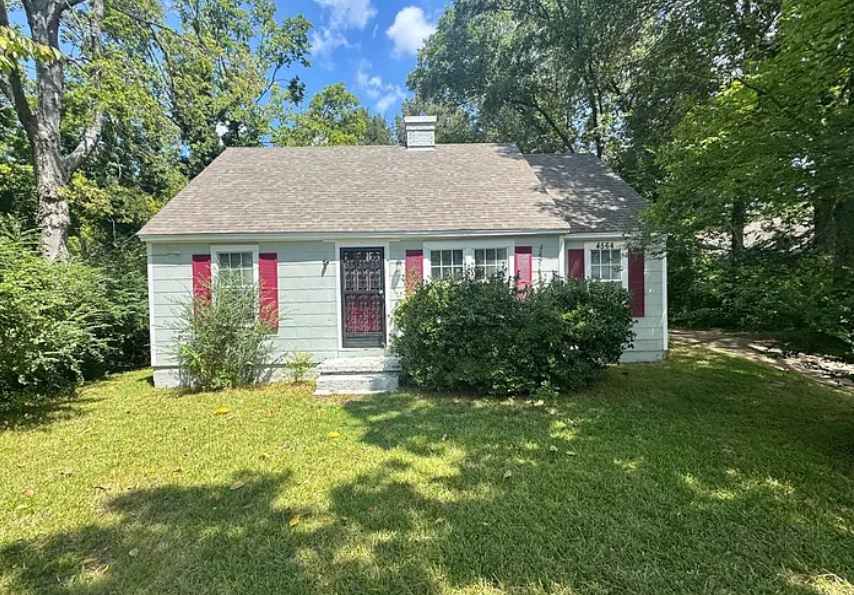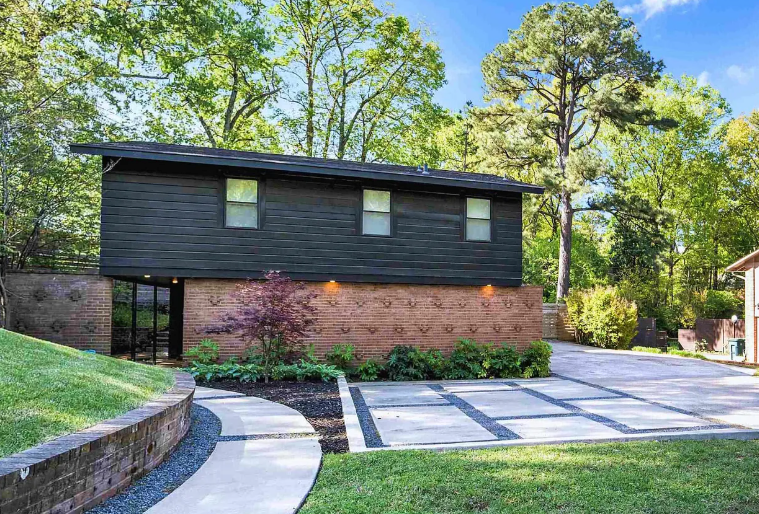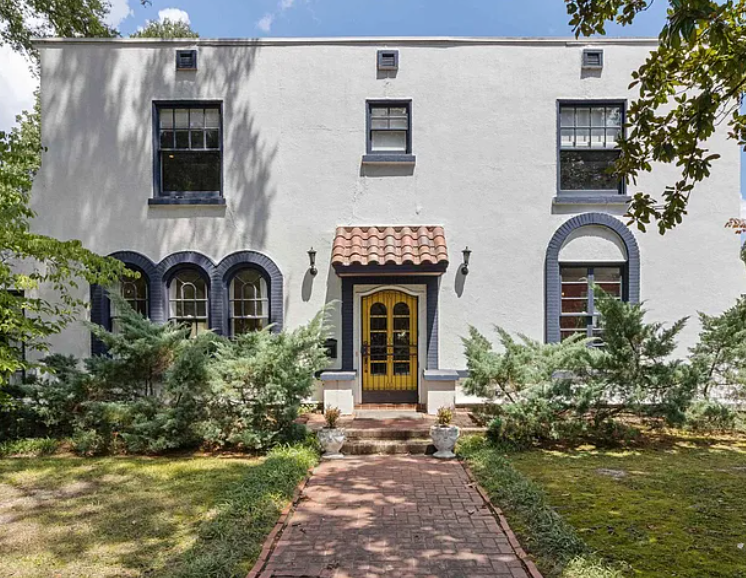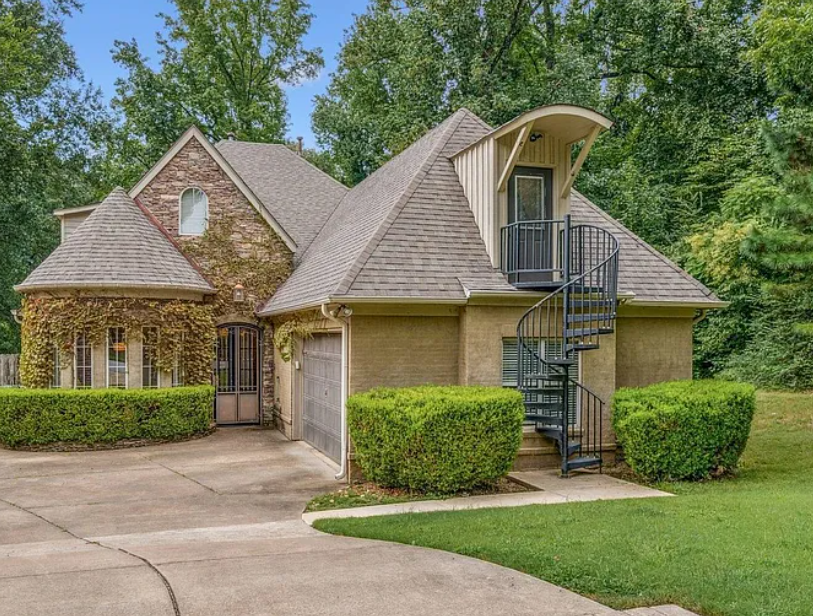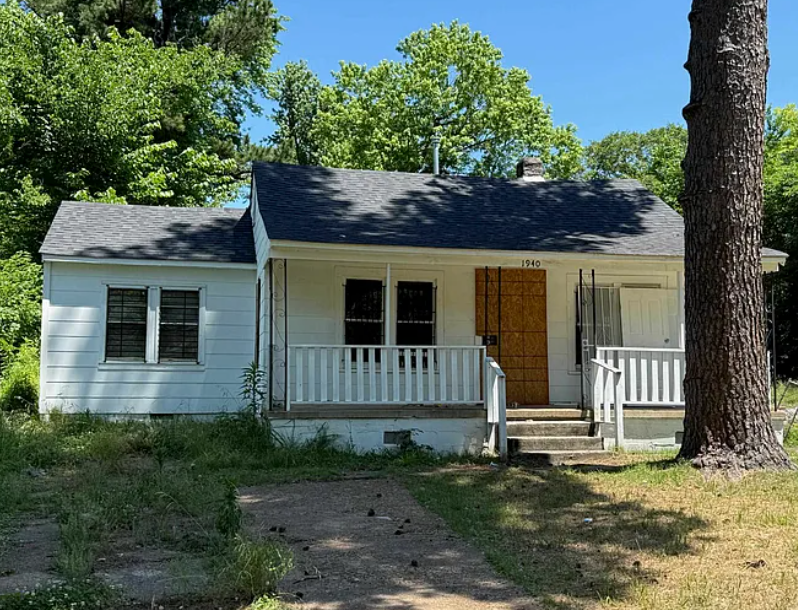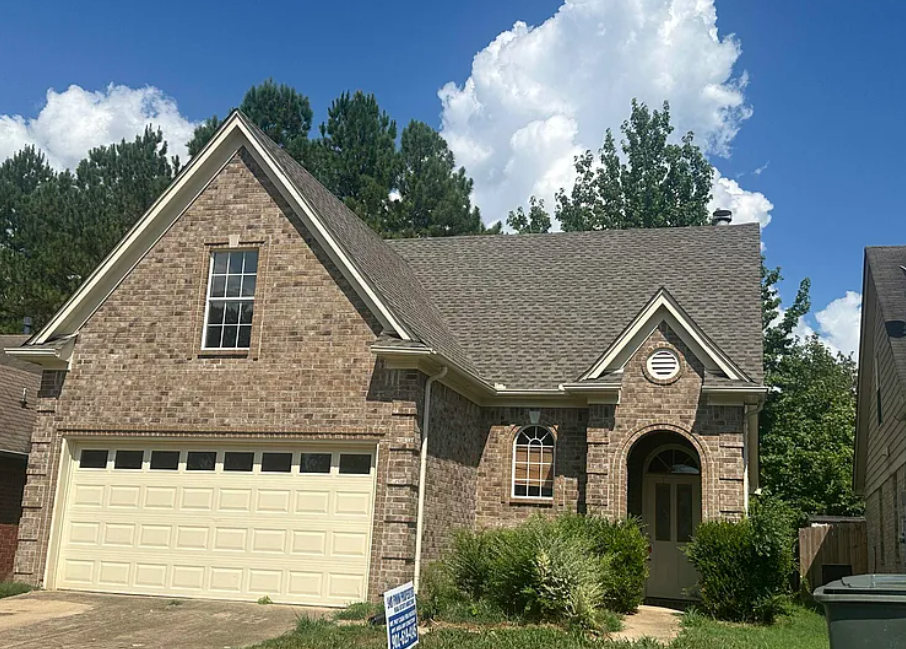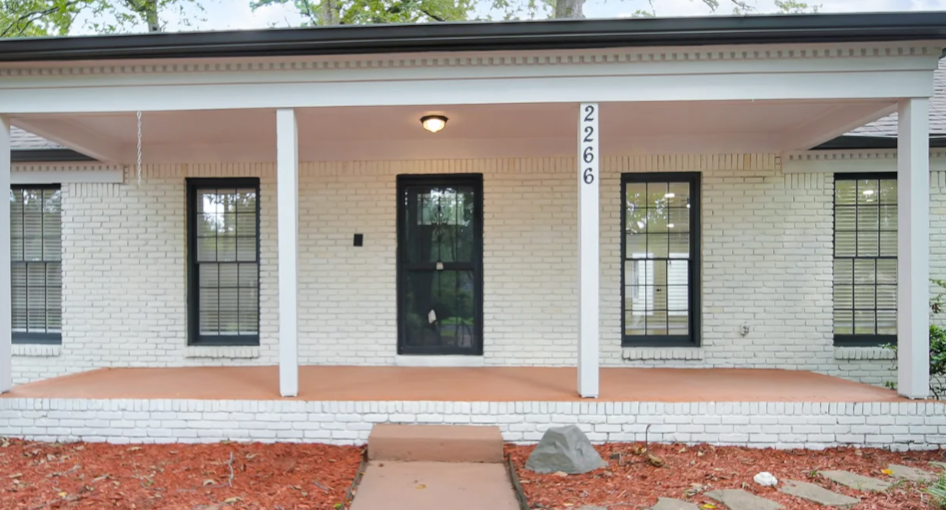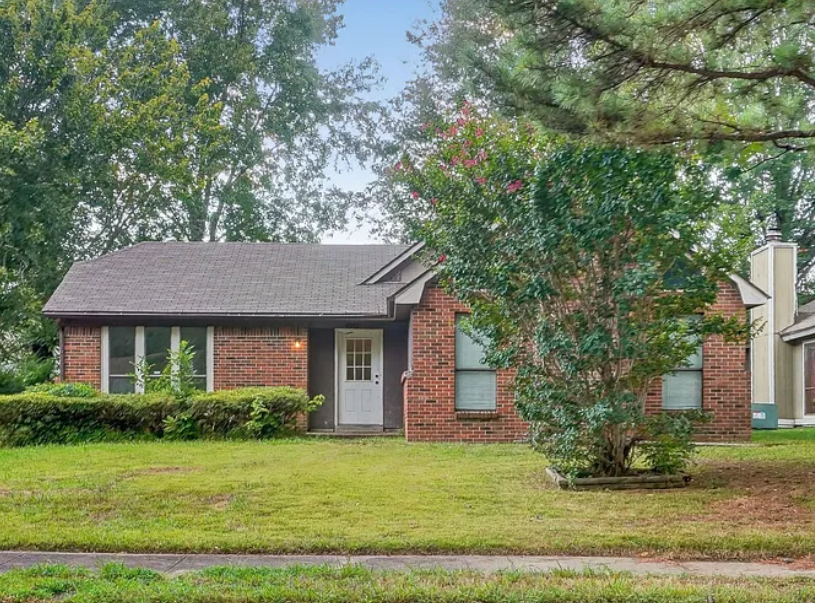What to Expect from Cash Offers in Memphis: A Complete Guide

Cash offers in Memphis represent a significant portion of real estate transactions, with cash buyers actively purchasing properties throughout Shelby, Fayette, Tipton, and DeSoto counties at various price points and condition levels. Understanding what cash offers typically include, how they compare to traditional financed offers, and what factors influence cash offer amounts can help Memphis homeowners make informed decisions about whether to accept cash offers or pursue traditional sales methods.
Memphis's 2025 real estate market, with median home prices of $204,625 and homes selling in an average of 31 days, creates an environment where cash offers provide both opportunities and trade-offs for homeowners. While cash offers typically come in below market value, they offer speed, certainty, and convenience that can make them attractive alternatives to traditional sales, particularly for homeowners facing time constraints, properties needing repairs, or situations where traditional financing might be challenging.
The Memphis area's diverse neighborhoods and property types create varying conditions for cash offers, with some areas and property conditions more likely to attract competitive cash offers while others may see more significant discounts from market value. Understanding these patterns and the factors that influence cash offer amounts helps homeowners set realistic expectations and evaluate cash offers effectively against their alternatives.
Cash buyers in Memphis range from individual investors to institutional buyers, each with different investment strategies, offer criteria, and transaction processes that affect the offers homeowners receive. Knowing what to expect from different types of cash buyers and how to evaluate their offers helps homeowners navigate cash sale opportunities while protecting their interests and maximizing their outcomes.
Types of Cash Buyers in Memphis
Memphis's cash buyer market includes various types of investors and companies, each with different business models, investment strategies, and offer characteristics that affect what homeowners can expect from cash transactions.
Individual Real Estate Investors
Individual investors represent a significant portion of Memphis's cash buyer market, typically focusing on rental properties, fix-and-flip projects, or long-term appreciation plays. These investors often have specific criteria for property types, neighborhoods, and condition levels that influence their offer amounts and transaction terms.
Individual investors may offer more flexibility in closing timelines and terms than institutional buyers, as they often make decisions quickly without extensive corporate approval processes. However, their financial capacity may be more limited, potentially affecting their ability to close on higher-priced properties or multiple simultaneous transactions.
The offers from individual investors typically reflect their specific investment strategies and return requirements. Rental property investors may focus on cash flow potential and offer amounts based on rental income projections, while fix-and-flip investors consider renovation costs and resale potential when determining offer prices.
Individual investors often develop expertise in specific Memphis neighborhoods or property types, allowing them to make competitive offers for properties that fit their investment criteria while potentially offering below-market prices for properties outside their focus areas.
iBuyer Companies and Technology Platforms
Technology-enabled iBuyer companies have entered the Memphis market, offering automated valuation systems and streamlined purchase processes that can provide quick offers and fast closings. These companies typically focus on properties in good condition in established neighborhoods with predictable market values.
iBuyer offers are typically based on automated valuation models that consider recent sales data, property characteristics, and market trends. While these systems can provide quick offers, they may not account for unique property features or local market nuances that could affect value.
The convenience of iBuyer transactions appeals to homeowners who want minimal hassle and quick closings, though the offers may be more conservative than what individual investors or traditional buyers might pay for properties that fit their specific criteria.
iBuyer companies typically charge service fees in addition to offering below-market prices, making it important for homeowners to understand the total cost of these transactions when comparing them to traditional sales or other cash buyer options.
Local House Buying Companies
Memphis has numerous local house buying companies that specialize in quick cash purchases throughout the metropolitan area. These companies often focus on distressed properties, inherited homes, or situations where homeowners need fast sales for personal or financial reasons.
Local house buying companies typically have established processes for property evaluation, offer generation, and closing coordination that can provide homeowners with quick and reliable transaction experiences. Their local market knowledge may allow them to make more accurate offers than national companies or automated systems.
The business models of local house buying companies vary, with some focusing on wholesale transactions where they contract properties and assign them to other investors, while others purchase properties directly for renovation and resale or rental purposes.
These companies often provide additional services such as assistance with moving, cleaning, or minor repairs that can add value for homeowners beyond the purchase price, though homeowners should understand what services are included and what additional costs might apply.
Institutional Investors and Funds
Large institutional investors and investment funds have increased their presence in Memphis's real estate market, particularly for rental property acquisitions and portfolio building. These buyers typically have substantial financial resources and can close quickly on multiple properties simultaneously.
Institutional buyers often focus on specific property types and neighborhoods that fit their investment criteria, potentially offering competitive prices for properties that meet their requirements while showing little interest in properties outside their target parameters.
The offers from institutional buyers may be more standardized and less negotiable than those from individual investors, as they often follow established investment criteria and approval processes that limit flexibility in pricing and terms.
These buyers typically prefer properties in good condition in stable neighborhoods with strong rental demand, making them less likely to purchase properties needing significant repairs or in transitional areas.
Typical Cash Offer Amounts and Pricing
Understanding how cash buyers determine offer amounts helps Memphis homeowners set realistic expectations and evaluate whether cash offers provide acceptable value compared to traditional sales alternatives.
Market Value Discounts
Cash offers in Memphis typically range from 60% to 85% of estimated market value, depending on property condition, location, market conditions, and the specific buyer's investment strategy. Properties in excellent condition in desirable neighborhoods may receive offers closer to market value, while properties needing significant work or in less desirable areas may see larger discounts.
The discount from market value reflects several factors including the buyer's profit requirements, renovation costs, carrying costs during improvement periods, transaction costs, and market risk. Cash buyers must account for these factors while still generating acceptable returns on their investments.
Memphis's affordable housing market means that even significant percentage discounts may result in reasonable dollar amounts for homeowners, particularly when compared to the costs and uncertainties of traditional sales processes.
Market conditions significantly influence cash offer amounts, with competitive markets potentially generating higher offers while slower markets may result in more conservative pricing from cash buyers who face less competition for properties.
Condition-Based Pricing Adjustments
Property condition represents one of the most significant factors affecting cash offer amounts, with buyers typically reducing offers based on estimated repair costs plus additional margins for profit and risk. Major system issues such as roof, HVAC, or foundation problems can result in substantial offer reductions.
Cash buyers often use standardized cost estimates for common repairs, which may not reflect actual contractor costs in Memphis but provide consistent frameworks for offer calculations. Homeowners should understand that these estimates may be conservative and include profit margins for buyers.
Cosmetic issues such as outdated kitchens, bathrooms, or flooring typically result in smaller offer reductions than major system problems, as these improvements are more predictable in cost and timeline.
Properties in excellent condition may receive offers much closer to market value, as cash buyers can minimize renovation costs and risks while potentially generating rental income or resale profits more quickly.
Location and Neighborhood Factors
Memphis neighborhood characteristics significantly influence cash offer amounts, with established areas like East Memphis, Germantown, and Midtown typically receiving higher offers than transitional or declining neighborhoods.
Proximity to employment centers, schools, transportation, and amenities affects cash buyer interest and offer amounts, as these factors influence both rental demand and resale potential for investment properties.
Crime rates, school quality, and neighborhood trends influence cash buyer perceptions of risk and return potential, affecting their willingness to pay premium prices for properties in specific areas.
Some cash buyers specialize in particular neighborhoods and may offer competitive prices for properties in their focus areas while showing less interest in properties outside their expertise zones.
What's Included in Cash Offers
Understanding what cash offers typically include and exclude helps Memphis homeowners evaluate these offers accurately and avoid surprises during the transaction process.
Standard Offer Components
Cash offers typically include the purchase price, proposed closing date, and basic terms such as "as-is" purchase conditions that eliminate seller repair obligations. The simplicity of cash offers can be appealing compared to traditional offers with multiple contingencies and requirements.
Most cash offers include proof of funds documentation that demonstrates the buyer's ability to complete the purchase without financing contingencies. This documentation provides sellers with confidence that the transaction will close as scheduled.
Cash offers may include brief inspection periods that allow buyers to verify property conditions, though these inspections typically don't result in repair requests or price negotiations like traditional buyer inspections.
The closing timeline in cash offers is typically much shorter than traditional sales, often ranging from 7 to 30 days depending on the buyer's requirements and the seller's preferences for closing timing.
Excluded Items and Seller Responsibilities
Cash offers typically exclude seller responsibilities for repairs, improvements, or warranties that might be expected in traditional sales. Buyers purchase properties in their current condition and assume responsibility for any needed work.
Sellers are typically responsible for providing clear title and basic property disclosures required by Tennessee law, though cash buyers often accept properties with minor title issues that might complicate traditional sales.
Home warranties, pest inspections, and other items commonly provided by sellers in traditional transactions are typically not included in cash offers, as buyers assume these responsibilities and costs.
Closing costs may be allocated differently in cash transactions, with some buyers offering to pay all closing costs while others expect sellers to pay typical seller expenses such as title insurance and transfer taxes.
Additional Services and Conveniences
Some cash buyers offer additional services that add value beyond the purchase price, such as assistance with moving expenses, property cleaning, or minor repairs that help sellers transition more easily.
Flexible closing dates can provide value for sellers who need extra time to find new housing or who want to close quickly to resolve urgent financial situations.
Some cash buyers offer rent-back arrangements that allow sellers to remain in properties for short periods after closing, providing transition time while completing the sale quickly.
These additional services vary significantly among cash buyers and should be considered when evaluating the total value of cash offers compared to traditional sales alternatives.
Evaluation Process and Timeline
Understanding how cash buyers evaluate properties and their typical timeline helps Memphis homeowners prepare for cash sale processes and set appropriate expectations for offer generation and closing.
Initial Property Assessment
Cash buyers typically begin with basic property information including address, size, age, condition, and recent sales data for comparable properties in the area. This initial assessment helps buyers determine whether properties fit their investment criteria and warrant detailed evaluation.
Many cash buyers use automated valuation systems that provide preliminary offer ranges based on public data and recent sales, though these automated systems may not account for unique property features or condition issues that affect value.
Drive-by evaluations or exterior inspections help cash buyers assess neighborhood conditions, property maintenance, and obvious condition issues that might affect their offer amounts or investment strategies.
Online research including property records, tax assessments, and neighborhood data helps cash buyers understand market conditions and property history that influence their evaluation and offer decisions.
Detailed Property Inspection
Serious cash buyers typically conduct interior inspections that allow them to assess property condition, needed repairs, and improvement potential that affect their offer calculations and investment returns.
These inspections focus on major systems such as HVAC, electrical, plumbing, and structural elements that represent significant cost factors in renovation planning and investment analysis.
Cash buyers often have renovation experience that allows them to estimate repair costs more accurately than typical homeowners, though their estimates may include profit margins and contingencies that result in conservative offer amounts.
The inspection process for cash buyers is typically faster and less formal than traditional buyer inspections, as cash buyers are prepared to purchase properties in current condition without extensive negotiation about repairs.
Offer Generation and Presentation
Cash offer calculations typically consider estimated market value, needed repairs, renovation costs, carrying costs, transaction expenses, and required profit margins to generate offer amounts that support buyers' investment objectives.
Offers are typically presented quickly after property evaluation, often within 24 to 48 hours of inspection, providing sellers with fast feedback about cash sale opportunities.
Cash offers are typically straightforward documents that include purchase price, closing timeline, and basic terms without the complexity of traditional purchase contracts with multiple contingencies and requirements.
Some cash buyers provide detailed explanations of their offer calculations, helping sellers understand how repair estimates and market factors influenced the offer amount.
Negotiation and Terms
While cash offers are typically less negotiable than traditional offers, Memphis homeowners can often influence certain terms and conditions to better meet their needs and preferences.
Price Negotiation Opportunities
Cash buyers may have some flexibility in pricing, particularly when sellers can provide information about property improvements, recent maintenance, or unique features that weren't apparent during initial evaluations.
Market conditions influence negotiation opportunities, with competitive markets potentially providing sellers with more leverage while slower markets may limit negotiation possibilities.
Multiple cash offers can create competitive situations that benefit sellers, though this scenario is less common than in traditional sales where financing contingencies create more uncertainty for buyers.
Sellers who can demonstrate property value through recent appraisals, improvement receipts, or comparable sales data may be able to negotiate higher offer amounts from cash buyers.
Closing Timeline Flexibility
Many cash buyers can accommodate seller preferences for closing timelines, whether sellers need quick closings to resolve urgent situations or prefer extended timelines to arrange new housing.
Rent-back arrangements allow sellers to remain in properties after closing for agreed periods, providing transition time while completing sales quickly to meet buyer preferences for fast transactions.
Early closing opportunities may be available when sellers are prepared to transfer ownership quickly, potentially resulting in higher offers from buyers who value immediate property control.
Seasonal timing considerations may affect both buyer interest and seller preferences, with some periods offering better conditions for cash transactions than others.
Additional Terms and Conditions
Cash buyers may be willing to handle certain seller responsibilities such as utility transfers, property cleaning, or minor repairs that add convenience value for sellers beyond the purchase price.
Flexible personal property arrangements allow sellers to leave items they don't want to move while taking valuable items, reducing moving costs and complexity for sellers.
Some cash buyers offer assistance with moving expenses or provide recommendations for moving companies, storage facilities, or other services that help sellers transition more easily.
Warranty disclaimers and as-is conditions are typically non-negotiable aspects of cash offers, as these terms are fundamental to cash buyers' business models and risk management strategies.
Comparing Cash Offers to Traditional Sales
Understanding how cash offers compare to traditional sales helps Memphis homeowners make informed decisions about which approach best meets their needs and financial objectives.
Financial Comparison Analysis
While cash offers typically provide lower gross proceeds than traditional sales, the net proceeds after expenses may be more competitive when considering real estate commissions, closing costs, repair expenses, and carrying costs during marketing periods.
Traditional sales in Memphis with 6% commissions cost approximately $12,000 for median-priced homes, while cash sales eliminate these commission expenses entirely. This difference can make cash offers more financially attractive than initial price comparisons suggest.
Repair costs that might be required for traditional sales can range from $5,000 to $25,000 or more for Memphis properties, representing expenses that cash sales eliminate by purchasing properties in current condition.
Carrying costs during traditional marketing periods, including mortgage payments, utilities, insurance, and maintenance, can add thousands of dollars to total selling expenses that cash sales eliminate through quick closings.
Timeline and Convenience Factors
Cash sales typically close within 2 to 4 weeks compared to 60 to 90 days for traditional sales, providing sellers with much faster access to sale proceeds and resolution of property ownership.
The certainty of cash sales eliminates risks associated with buyer financing, inspections, and appraisals that can delay or prevent traditional sales from closing successfully.
Property preparation requirements for traditional sales, including cleaning, staging, and repairs, require time and effort that cash sales eliminate by purchasing properties in current condition.
Showing coordination and marketing management required for traditional sales create ongoing responsibilities for sellers that cash sales eliminate through direct buyer transactions.
Risk and Certainty Considerations
Traditional sales involve multiple contingencies and approval processes that can result in transaction failures even after weeks of marketing and negotiation, while cash sales provide much greater certainty of completion.
Market condition changes during extended traditional sale processes can affect final sale prices, while cash offers provide price certainty that protects sellers from market volatility.
Buyer financing issues represent significant risks in traditional sales that can delay closings or cause transaction failures, while cash sales eliminate these financing-related risks entirely.
Inspection negotiations in traditional sales can result in price reductions or repair requirements that reduce net proceeds, while cash sales typically avoid these post-contract negotiations.
Red Flags and Scam Prevention
Memphis homeowners should be aware of potential red flags and scam tactics that can occur in cash buyer transactions, protecting themselves while pursuing legitimate cash sale opportunities.
Legitimate vs. Illegitimate Buyers
Legitimate cash buyers provide proof of funds documentation, have established business addresses and contact information, and can provide references from previous transactions or professional credentials.
Scam operators may pressure sellers for quick decisions, request upfront fees, or provide vague or evasive answers about their business operations and transaction processes.
Professional cash buyers typically have established websites, business licenses, and professional relationships with title companies, attorneys, and other real estate professionals in Memphis.
Legitimate buyers are willing to provide detailed explanations of their offer calculations and transaction processes, while scammers may be evasive about their methods or unwilling to provide documentation.
Contract and Documentation Review
Professional legal review of cash purchase contracts helps ensure that terms are fair and protect sellers' interests, particularly for homeowners unfamiliar with real estate transactions.
Legitimate contracts include standard real estate terms and conditions, while scam contracts may include unusual clauses that benefit buyers at sellers' expense or create opportunities for buyer withdrawal without penalty.
Proof of funds documentation should be current and from legitimate financial institutions, with verification available through direct contact with banks or financial institutions if necessary.
Title company involvement provides additional protection for sellers, as legitimate title companies verify buyer funds and ensure proper transaction completion according to contract terms.
Warning Signs to Avoid
High-pressure tactics that demand immediate decisions without allowing time for consideration or professional consultation should be viewed as red flags that may indicate illegitimate operators.
Requests for upfront fees, earnest money deposits paid directly to buyers, or other unusual financial arrangements should be avoided in favor of standard real estate transaction procedures.
Buyers who are unwilling to provide proof of funds, business references, or professional credentials may not be legitimate cash buyers with the ability to complete transactions as promised.
Offers that seem too good to be true or significantly above market value may be attempts to attract sellers into scam situations that ultimately don't result in completed transactions.
Conclusion: Making Informed Decisions About Cash Offers
Cash offers in Memphis provide homeowners with viable alternatives to traditional sales that can offer speed, certainty, and convenience in exchange for potentially lower gross sale prices. Understanding what to expect from cash offers, how they're calculated, and how they compare to traditional sales helps homeowners make informed decisions about whether cash sales meet their needs and objectives.
The Memphis market's characteristics, including strong cash buyer presence and diverse property types, create opportunities for homeowners throughout the metropolitan area to receive competitive cash offers that may provide better net proceeds than traditional sales when all costs and factors are considered.
Success in evaluating cash offers requires understanding your priorities regarding timeline, convenience, and financial outcomes while carefully comparing the total costs and benefits of cash sales versus traditional alternatives. Memphis homeowners who take time to understand their options and work with legitimate, professional cash buyers often achieve outcomes that meet their needs while avoiding the complications and uncertainties of traditional sales processes.
Remember that the best choice for your situation depends on your specific circumstances, property condition, timeline requirements, and financial objectives. Focus on your net proceeds and overall goals rather than just gross sale prices when evaluating cash offers against traditional sales alternatives.
Request Your Offer Now
